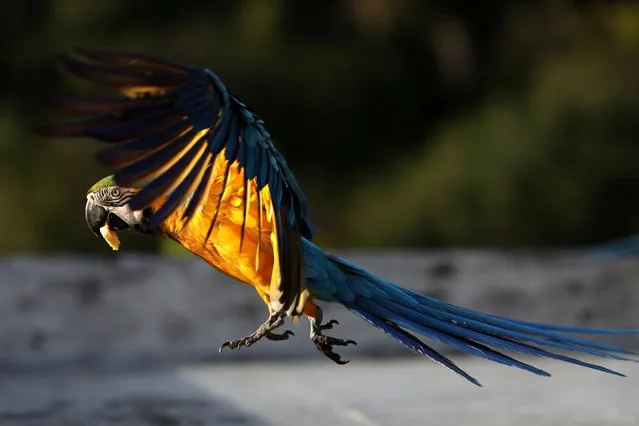
Looking for an escape from the daily realities of crisis-ridden Venezuela, Carmen Gomez finds solace receiving visitors on the roof of her Caracas apartment building every morning: groups of blue and gold macaws that arrive at daybreak. Gomez, a 49-year-old alternative medicine therapist, sat one bright morning in May on top of her 11-story building with a can of sunflower seeds and a tray of bananas to await their arrival. After nearly an hour, two macaws landed on the roof. A third swooped out of the sky and casually perched on her head – releasing two of the typical squawks that often resonate across the city. “This one decided that she's mine – or rather that I'm hers”, said Gomez, who noted she recognizes the bird because of a mark on its beak. “I think they've turned into the therapists of Caracas”, she said, unfazed by the bird impatiently pecking her forehead as she peeled a banana. Long described as a bright spot in a city that has been in decline for years, Caracas's macaws have become a mechanism of escape from the daily grind of finding potable water, struggling with collapsing internet and avoiding crime-ridden streets. Here: A macaw flies over a rooftop of a building with a piece of banana in its beak in Caracas, Venezuela, June 12, 2019. (Photo by Manaure Quintero/Reuters)
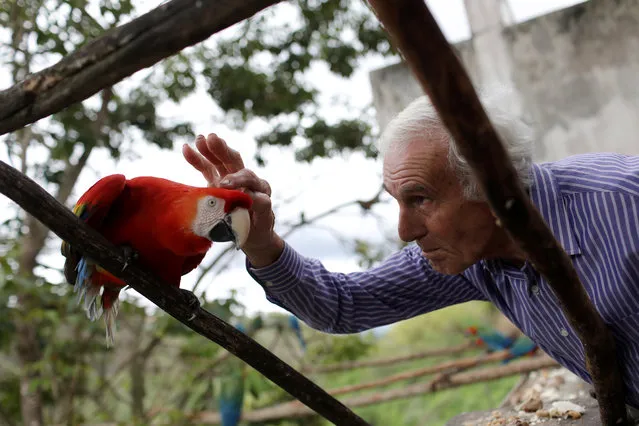
Vittorio Poggi caresses a macaw's head at his house near Caracas, Venezuela, June 18, 2019. (Photo by Manaure Quintero/Reuters)
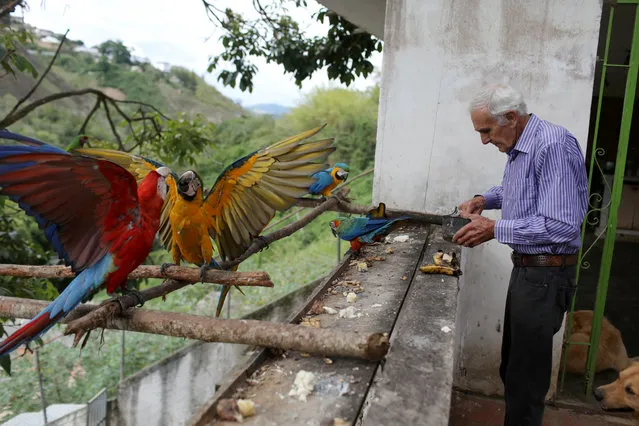
Vittorio Poggi puts food to the macaws at his house outside Caracas, Venezuela, June 18, 2019. (Photo by Manaure Quintero/Reuters)
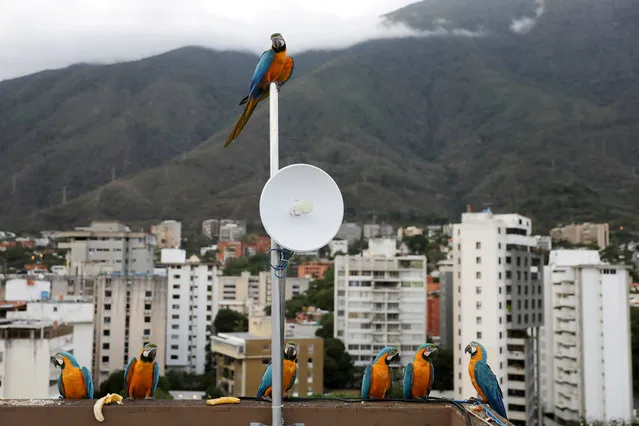
Macaws stand on a rooftop of a building with the Avila mountain behind in Caracas, Venezuela, June 6, 2019. (Photo by Manaure Quintero/Reuters)
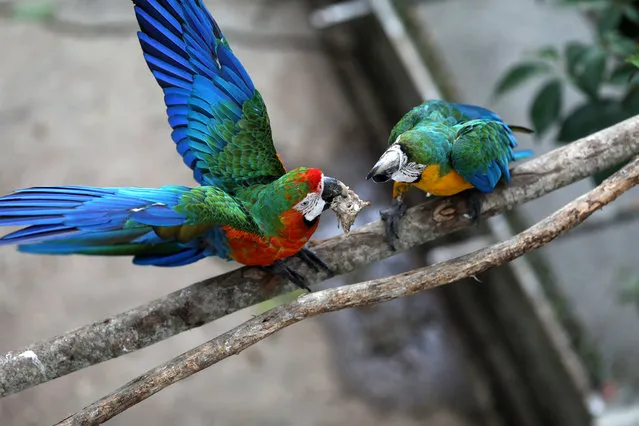
Two macaws fight for a chicken head at Vittorio Poggi's house outside Caracas, Venezuela, June 18, 2019. (Photo by Manaure Quintero/Reuters)

A macaw flies over buildings in Caracas, Venezuela, June 6, 2019. (Photo by Manaure Quintero/Reuters)
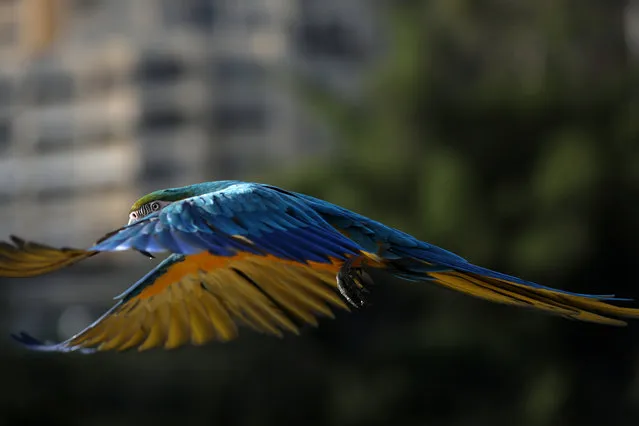
A macaw flies in Caracas, Venezuela, June 12, 2019. (Photo by Manaure Quintero/Reuters)
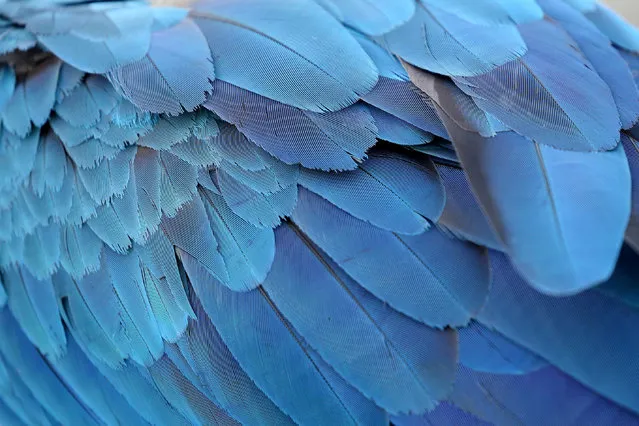
The feathers of a macaw are seen as it stands on a rooftop of a building in Caracas, Venezuela, June 6, 2019. (Photo by Manaure Quintero/Reuters)
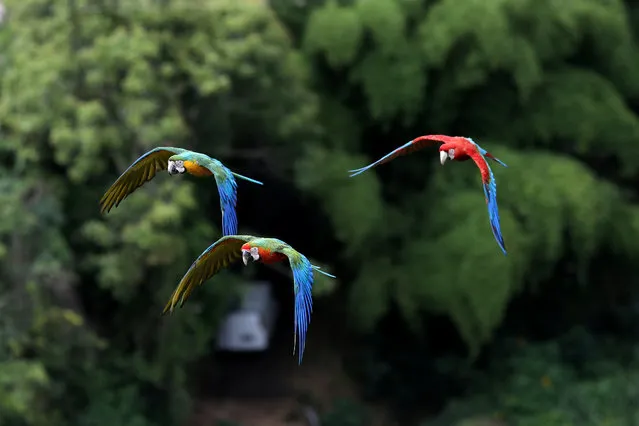
Macaws fly near Vittorio Poggiís house outside Caracas, Venezuela, June 18, 2019. (Photo by Manaure Quintero/Reuters)
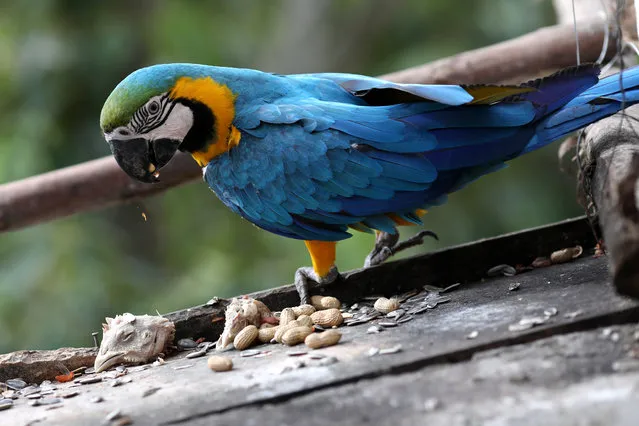
A macaw eats peanut, near a chicken head at Vittorio Poggi's house outside Caracas, Venezuela, June 18, 2019. (Photo by Manaure Quintero/Reuters)
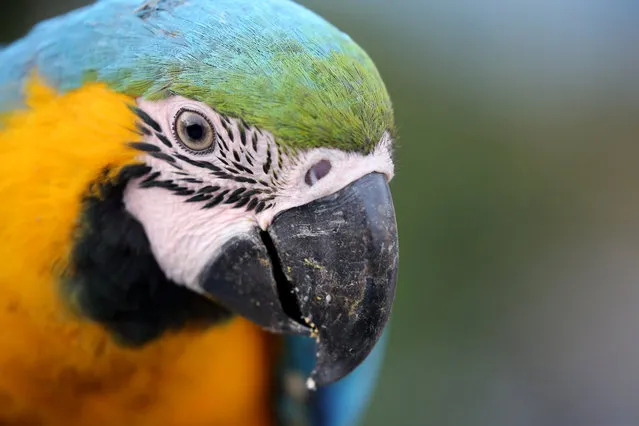
A macaw stands on a rooftop of a building in Caracas, Venezuela, June 6, 2019. (Photo: Manaure Quintero/Reuters)
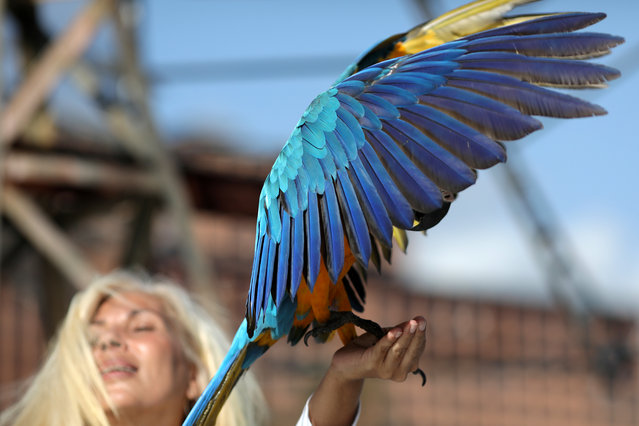
A macaw lands in Carmen Borges' hand while she stays at a rooftop of a building in Caracas, Venezuela, June 12, 2019. (Photo by Manaure Quintero/Reuters)
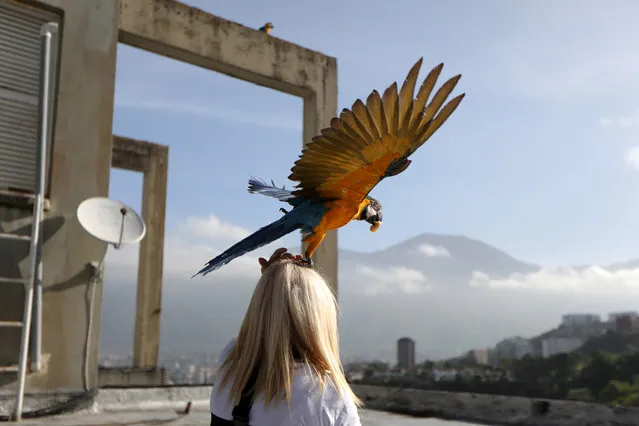
A macaw takes off from Carmen Borges' head at a rooftop of a building in Caracas, Venezuela, June 12, 2019. (Photo by Manaure Quintero/Reuters)
24 Jul 2019 00:03:00,
post received
0 comments
